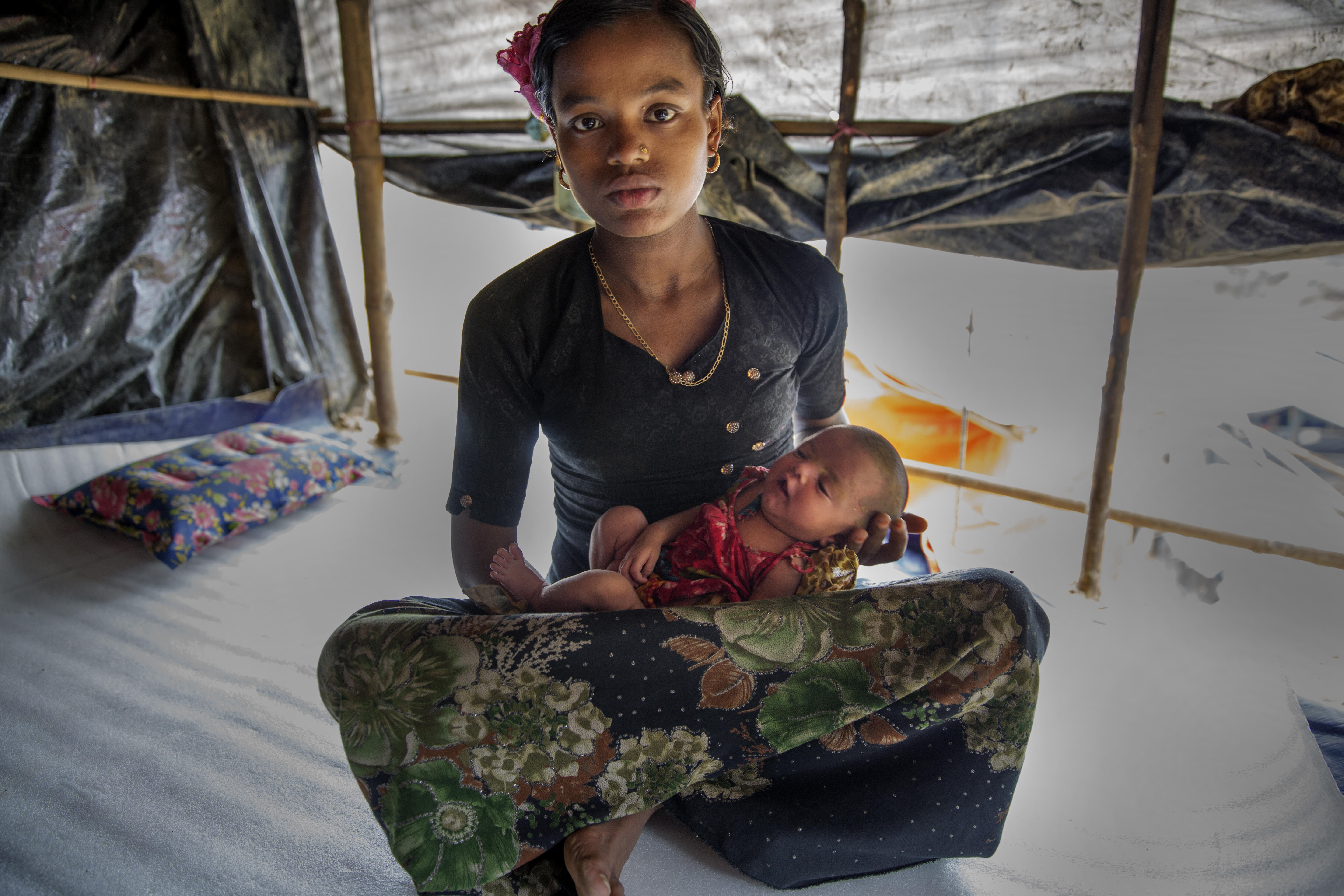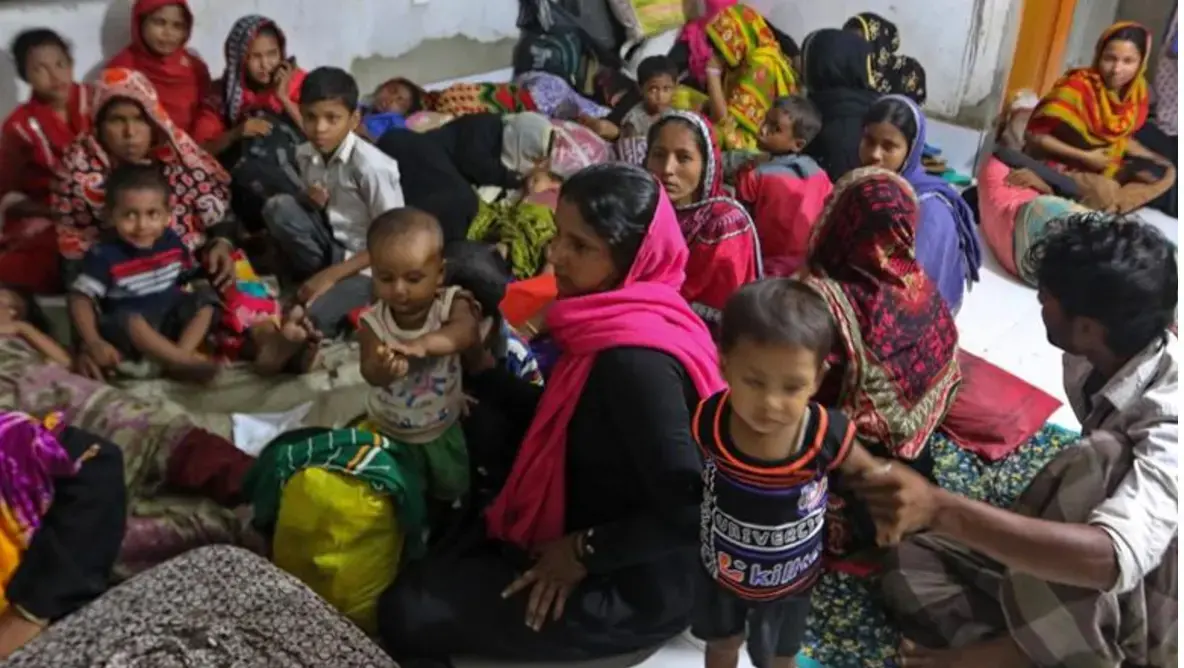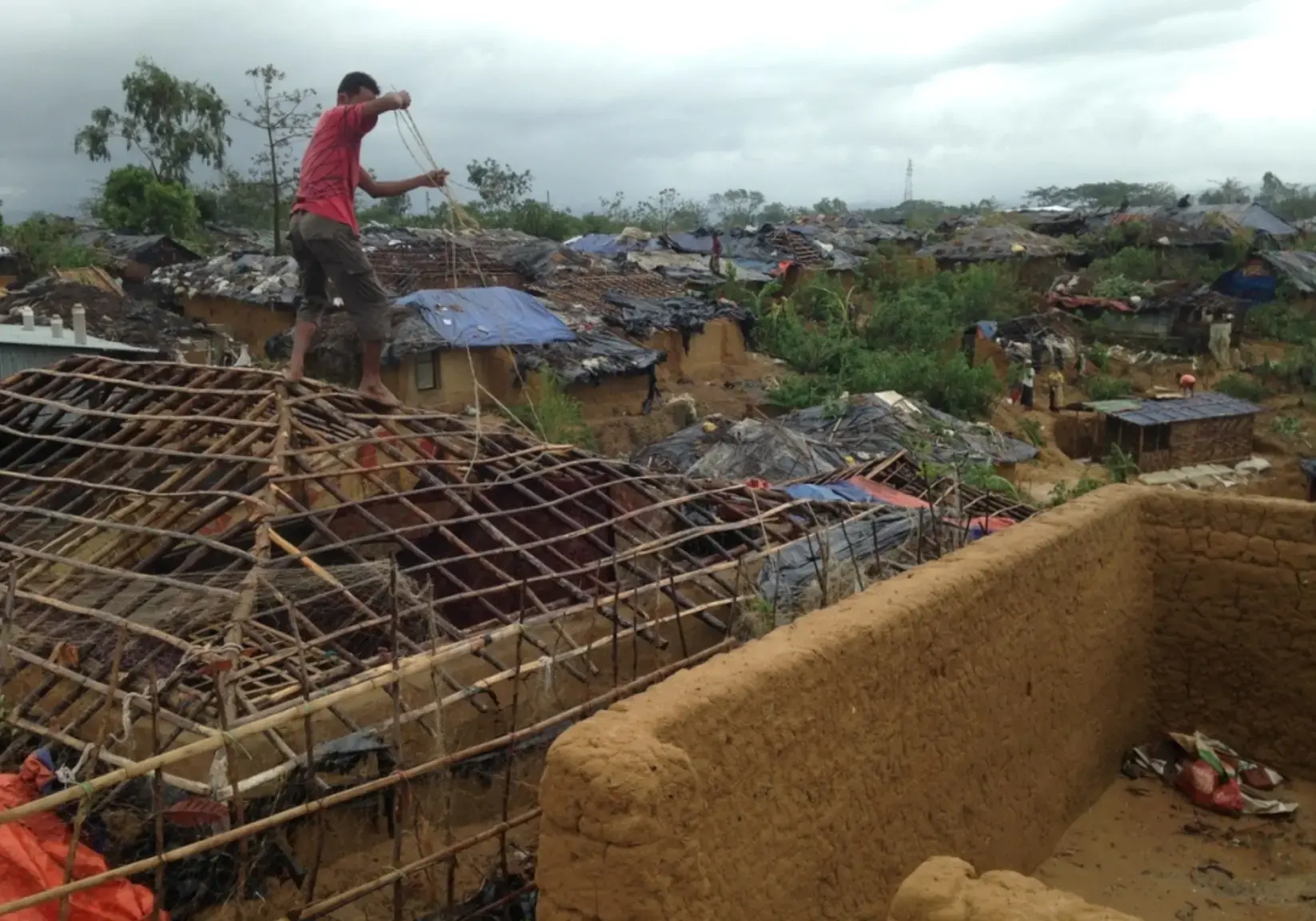Cox’s Bazar, 17 December 2017 – The Government of the Republic of Korea has committed US$ 500,000 to assist UNFPA Bangladesh with its crucial response to the unique sexual reproductive health and protection needs of women and girls affected by the ongoing Rohingya humanitarian crisis.
In times of crisis, women do not stop getting pregnant or having babies. Of the estimated 655,000 Rohingya refugees who have fled Myanmar since August 25th and sought refuge in the Cox’s Bazar District of Bangladesh, more than 30,000 are pregnant women. It is estimated that nearly 10,000 will give birth by March 2018, and 15 percent of them will likely experience life-threatening obstetric complications and therefore require emergency obstetric and newborn care services.
The refugee camps and settlement sites in Cox’s Bazar remain distressing environments for women and girls to navigate. Even after arriving in Bangladesh, Rohingya women and girls continue to face the risk of violence, exploitation and loss of dignity, at a time when they are coping with inconceivable trauma and struggling to rebuild their lives.
UNFPA is spearheading lifesaving efforts to respond to the acute health and protection needs of women and girls amid this crisis, as well as planning for the protracted situation ahead.
60 midwives whom UNFPA has deployed to static and mobile service sites are taking care of the needs of pregnant women, new mothers, newborns, and survivors of sexual violence. The UN agency is also providing Clean Delivery Kits to help mothers and newborns avoid infections during childbirth. UNFPA’s Women Friendly Spaces are providing a safe place for women and girls to rest and receive psychosocial support and counselling, and also referrals to UNFPA-supported health facilities for clinical care services for survivors of gender-based violence. UNFPA is also supplying Dignity Kits with essential hygiene and protection items, such as sanitary pads, clothing and torches.
The Republic of Korea’s support will aid these unique UNFPA interventions to safeguard women’s health and well-being.
Ambassador Chull-joo Park, Deputy Permanent Representative of the Republic of Korea to the UN in New York, said, “UNFPA has remained the Republic of Korea’s main international partner in addressing sexual and reproductive health and rights. Our country hopes that the additional funding to UNFPA’s response to the crisis will assist in improving access to essential reproductive, maternal, newborn and child health services as well as targeted services on gender-based violence.”
With more Rohingya women and girls arriving in Bangladesh from Myanmar every day, growing needs are outpacing resources. The contribution of the Republic of Korea is vital in continuing and scaling up UNFPA’s response in 2018.
UNFPA Bangladesh appreciates the Government of the Republic of Korea for focusing its humanitarian support on the dire needs of women and girls, often neglected in crisis settings.
“UNFPA welcomes the Republic of Korea’s vital contribution to help ensure the sexual and reproductive health and protection needs of women and girls are kept at the forefront of this humanitarian response,” said Iori Kato, Acting Representative of UNFPA Bangladesh.
“In times of conflict, women and girls are particularly vulnerable. With this support, we can make sure they receive services and supplies in integrated ways that promote their health, safety, dignity and rights together.”
***

For more information, contact: Melissa Ludeke, UNFPA Humanitarian Communications Officer, ludeke@unfpa.org +880 187 265 6278





